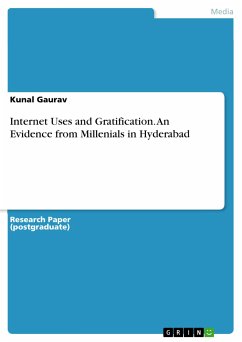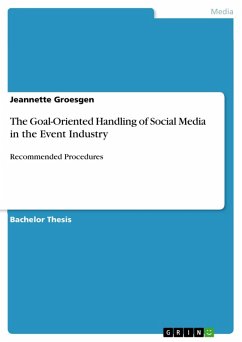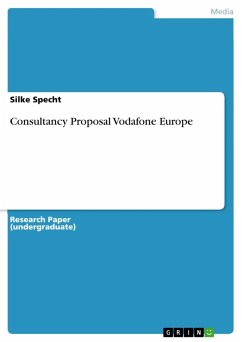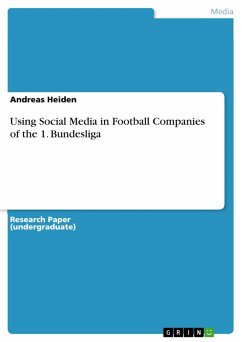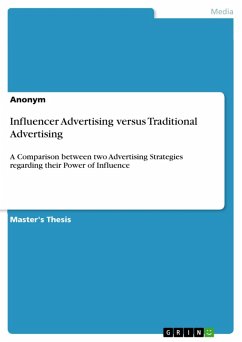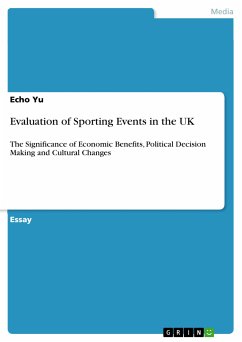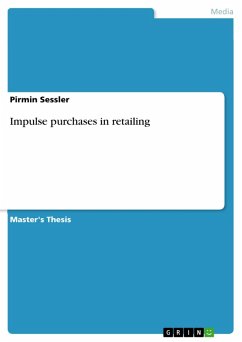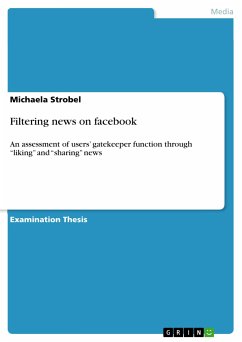
Filtering news on facebook (eBook, PDF)
An assessment of users' gatekeeper function through "liking" and "sharing" news
Versandkostenfrei!
Sofort per Download lieferbar
Statt: 15,95 €**
13,99 €
inkl. MwSt. und vom Verlag festgesetzt.
**Preis der gedruckten Ausgabe (Broschiertes Buch)
Alle Infos zum eBook verschenkenWeitere Ausgaben:

PAYBACK Punkte
0 °P sammeln!
Examination Thesis from the year 2013 in the subject Communications - Public Relations, Advertising, Marketing, Social Media, grade: 2,0, Stockholm University (JMK), course: Method Project, language: English, abstract: The basis for this study is the assumption that there is a shift in power relations to be observed due to the growing importance of networks online. Following the recent downward spiral of traditional news media's sales (MarketLine, February 2013) the question is whether those formerly well-respected news sources are not only losing revenue but also their authoritative position ...
Examination Thesis from the year 2013 in the subject Communications - Public Relations, Advertising, Marketing, Social Media, grade: 2,0, Stockholm University (JMK), course: Method Project, language: English, abstract: The basis for this study is the assumption that there is a shift in power relations to be observed due to the growing importance of networks online. Following the recent downward spiral of traditional news media's sales (MarketLine, February 2013) the question is whether those formerly well-respected news sources are not only losing revenue but also their authoritative position as opinion leaders. . News content may vary in different countries and social layers but the fact that news has always been a decisive factor in human interaction also applies - if not even more - to the online world. According to the recent McArthur report, 58 % of forwarded links in the U.S. are containing a political message - a phenomenon called "latent capacity" (Jenkins, 2012, p. 12). Newspapers have recognized this potential and created their own pages on social networks. But is this measure effective? Are people still more likely to "like" and "share" information which has been publicized by a supposedly reliable media house or do they trace the information back to its source by checking the concerning company's, organization's or celebrity's easily accessible facebook page? Moreover, are facebook "friends" taking over the function of gatekeepers who supply us with information? What is of interest in this respect is where those forwarded links are originating. As Christakis and Fowler unravel in their study on social networks, those trends do not only spill over from friend to friend, but even more by traversing several connections such as our "friends' friends' friends" (Christakis & Fowler, 2009, p. 22) - a phenomenon which Granovetter calls "the strength of weak ties" (Granovetter, 1973). In the time of facebook trends and opinions are taking shape within the realm a virtual place which many of its inhabitants worldwide visit on a regular daily basis (Digitalbuzz, 2013). . It is only natural that new routes of information flow develop within this space. However, so far not study has been made which traces this flow of information and identifies the relevant opinion leaders. The aim of this study is to be able to answer questions of human interaction; therefore using the example of facebook, the paths shared content takes and the relationships who serve as vehicle to carry this information will be analyzed. The key question here is: Has the global online network culture altered whom we trust, which news we consume and what information we eventually share with the world?
Dieser Download kann aus rechtlichen Gründen nur mit Rechnungsadresse in A, B, BG, CY, CZ, D, DK, EW, E, FIN, F, GR, HR, H, IRL, I, LT, L, LR, M, NL, PL, P, R, S, SLO, SK ausgeliefert werden.




